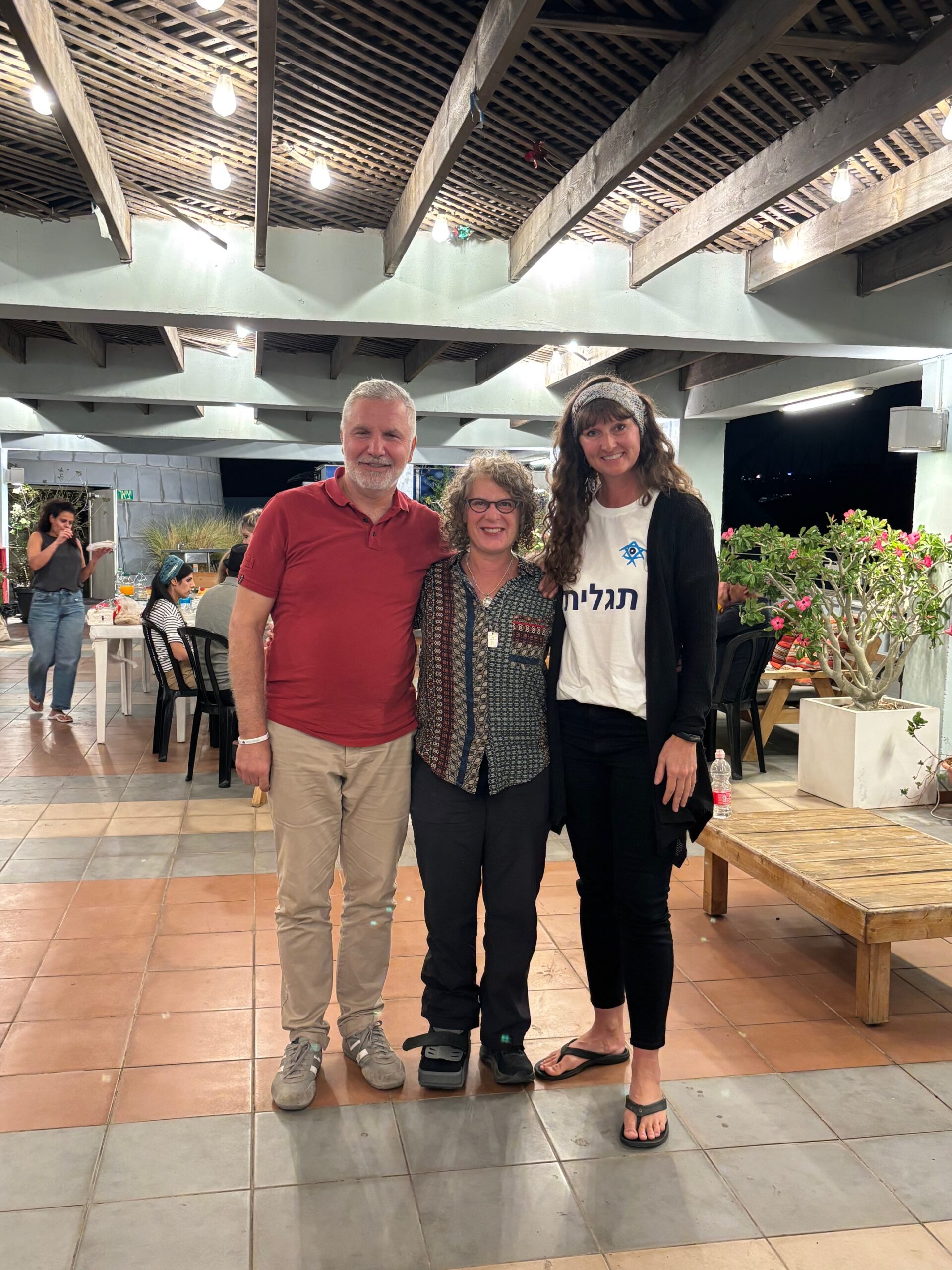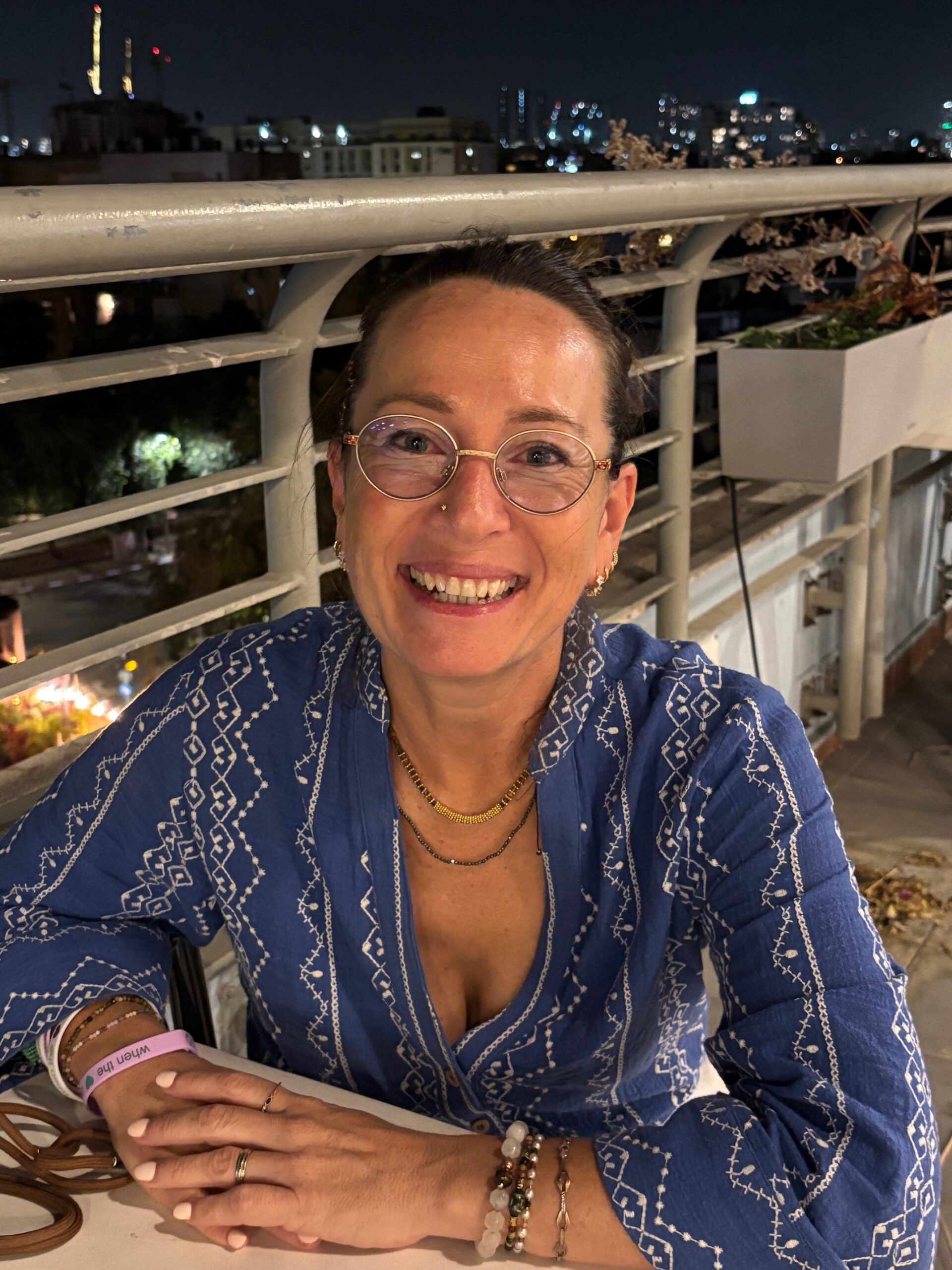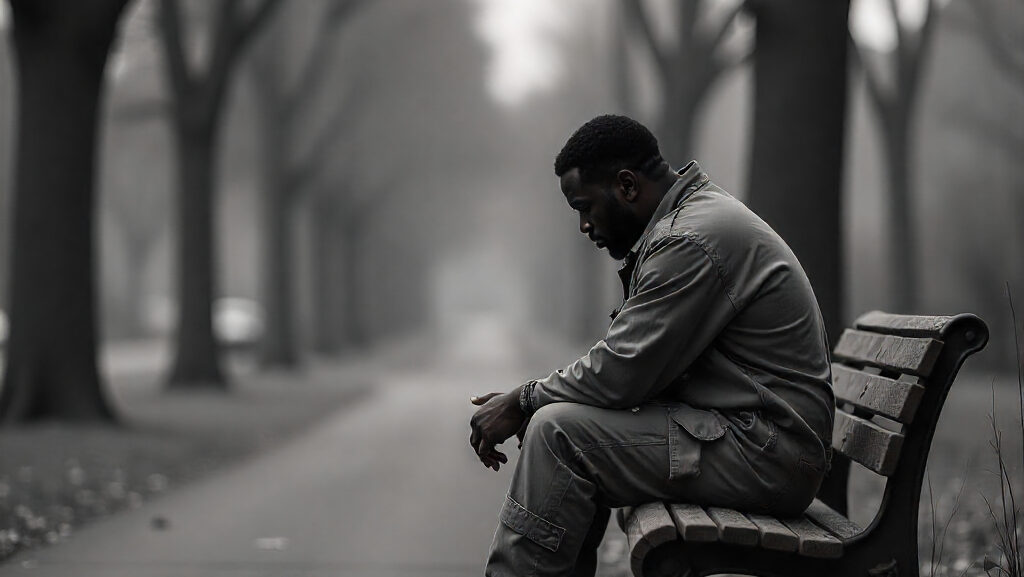‘When Things Start To Come Up’: Planetherapy’s International Volunteers Provide Free Therapy to Israelis as War Winds Down
Planetherapy has a network of more than 300 volunteers from 35 countries, collectively speaking 22 languages, and has already provided more than 4,000 free therapy sessions to Israelis and Jews around the world
As the war with Hamas cools to a simmer and soldiers return home, Israel may see a surge in anxiety and trauma-related symptoms among the general population, warns Igor Teplitchi, a clinical psychologist based in France.
“Once there is not so much action, what’s deep inside might come up,” Teplitchi told The Media Line. “There are a lot of people who might need our help.”
Teplitchi is a volunteer with Planetherapy, a nonprofit organization that provides free therapy sessions to Israelis and Jews affected by Oct. 7 — no questions asked. It was launched by a Jewish spiritual adviser from Spain about a week after the 2023 war began.
Today, more than a dozen volunteer therapists worldwide are on a Taglit-funded mission in Israel, offering counseling to first responders, local trauma therapists, Nova festival survivors and others. They’re also strengthening themselves to prepare for the next “wave of need.”
“Now is when things start to come up,” stressed Canada’s Dr. Shari Geller, a Planetherapy volunteer. “When the soldiers come home, when you’re not so busy, the dreams come. That’s when the thoughts might come. So this is when, more than ever, I think it’s our time to really come alongside Israel. You can connect with someone who can support your needs in just two clicks.”

Planetherapy volunteers, from left: Igor Teplitchi, Dr. Shari Geller and Jill Dykstra (Maayan Hoffman/The Media Line)
Geller described the hostages’ return as the moment the people of Israel could finally take a “collective breath.”
“They have been holding their breath for two years,” she said.
When the soldiers come home, when you’re not so busy, the dreams come. That’s when the thoughts might come.
But she explained that with those held breaths came layers of unprocessed trauma.
Experts estimate that as many as 3 million Israelis could experience some form of post-traumatic stress disorder (PTSD), a figure still unconfirmed as the war only recently began to wind down. There has not yet been a comprehensive postwar mental health assessment.
Moreover, Geller added that accessing help in Israel is often difficult — not due to the quality of care, which many regard as world-class, but because of bureaucracy and sheer demand. Therapists who have supported victims since the start of the war are themselves fatigued, and some are experiencing vicarious trauma.
During their nearly two-week trip, the visiting therapists met with ZAKA volunteers. Although many of the therapists do not speak Hebrew and many ZAKA members do not speak English, participants on both sides described the encounter as deeply moving.
Give the gift of hope
We practice what we preach:
accurate, fearless journalism. But we can't do it alone.
- On the ground in Gaza, Syria, Israel, Egypt, Pakistan, and more
- Our program trained more than 100 journalists
- Calling out fake news and reporting real facts
- On the ground in Gaza, Syria, Israel, Egypt, Pakistan, and more
- Our program trained more than 100 journalists
- Calling out fake news and reporting real facts
Join us.
Support The Media Line. Save democracy.


Most ZAKA volunteers are men, and it has often been hard for them to open up. However, during a recent session, they were able to release many of the emotions they had been holding in.
“Through talking, through sharing — a therapy environment of presence and support and connection, whether it’s individual or in groups — there can be some neurophysiological safety and calming in the therapeutic relationship,” Geller said. “And then they can express some of that deep pain.”
The Planetherapy group also traveled south to several kibbutzim, where they held sessions for Israeli therapists who have been treating residents since the attacks.
“A therapist needs to protect himself, too,” Teplitchi said.
The founder of Planetherapy is Ilana O’Malley, a coach specializing in addiction recovery and rehabilitation.
O’Malley spent many of her formative years in Israel and was deeply affected by the events of Oct. 7. When she realized the immense need for therapy, she wanted to volunteer, but when she searched for a way to help, there was no official website or registration framework.
“So, I started my own,” she told The Media Line.

Ilana O’Malley (Maayan Hoffman/The Media Line)
Planetherapy has grown into a network of more than 300 volunteers from 35 countries, collectively speaking 22 languages. The organization has already provided more than 4,000 free therapy sessions to Israelis and Jews around the world. Anyone can access help on the website; with just 2 clicks, they can connect to their first session.
O’Malley said the team now has the capacity to offer up to 2,400 sessions per month, provided more people learn about the service and sign up.
With Planetherapy, we don’t ask you; you don’t have to fill out a form to prove you have PTSD. We’re going to make it easy. You choose a therapist and get started.
“With Planetherapy, we don’t ask you; you don’t have to fill out a form to prove you have PTSD,” O’Malley said. “We’re going to make it easy. You choose a therapist and get started.”
Another volunteer, Jill Dykstra, described the experience as empowering, even like shopping.
“You can shop for the person you want,” she explained, referring to the range of modalities offered. “Some volunteers are therapists, some do meditation or breath work, and still others are coaches.”
“You can look at their profile and really pick and choose exactly what you want and what your need is,” Dykstra added. “That’s what I think is one of the most amazing things, and why I love to be a part of this organization.”
O’Malley said the team’s trip to Israel was meant to connect in person with some of the people they’ve been helping and provide group therapy sessions. It was also an opportunity to strengthen the volunteers as they continue their work.
O’Malley noted that Planetherapy’s advisers also come from around the world, including Professor Craig Katz, a mental health expert who helped establish New York’s mental health protocols after the 9/11 terrorist attacks.
“Being here and, honestly, really getting to know the people personally, as opposed to online and in all of our meetings, has really confirmed the process even more and how much more I want to bring light globally to Israelis and support everybody,” said Dykstra, who is not Jewish. “We are not taking any money. We’re putting our heart and soul into wanting to come alongside Israel — to bless and support in every way we can.”
You can shop for the person you want. Some volunteers are therapists, some do meditation or breath work, and still others are coaches
Geller, too, said the trip had deepened her sense of purpose and reaffirmed her belief that she can make a difference.
“Being in Canada is so far away,” she told The Media Line. “I just want to be able to give back and to support people, and being a part of Planetherapy allows me to do that.”
She added that the team’s central message to Israelis is vital yet straightforward:
“You are not alone,” Geller said. “Reach out.”

